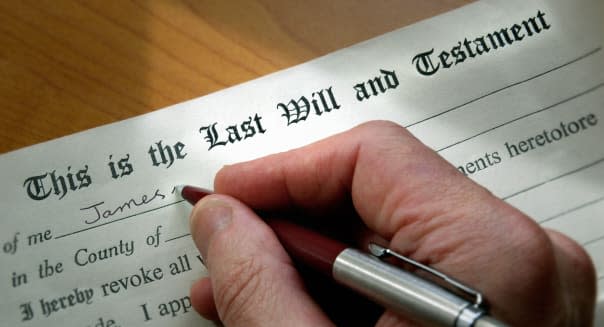4 Things You Didn't Know About Wills - But Should

Most people know that if you care who gets your assets after you die, you should create a will setting out your intentions. Let's look now at several important aspects about wills that a surprisingly large number of people don't know.
1. Even in the Electronic Age, You Must Still Follow Formalities
The laws covering wills are some of the oldest on the books in most states, and one common complaint is that they've failed to keep up with the times. In an era of mobile devices and electronic documents where paper confirmation is becoming less prevalent, creating a will that a court will treat as valid still requires that you follow those often-antiquated laws precisely.
The key element in most states is that you have to sign the will in the presence of witnesses, who then will have the duty of testifying in probate court after your death that the will was validly signed. In some states, having those witnesses' signatures notarized makes it a self-proving will, eliminating the requirement of witness testimony to prove validity. In a limited number of cases, wills that are entirely handwritten can be valid without witnesses, but the requirements differ from state to state and are often full of traps for the unwary. The smartest thing to do is to look up witness requirements and follow them to the letter.
2. You Might Need a Will Even If You're Poor
Many younger couples never think to create a will because they figure that with few or no assets, they don't have anything to leave. But if you're a parent, your will is typically the place where you'll name the person you'd like to take care of your children if something happens to you. If you don't choose a guardian, then a judge will decide.
3. Didn't Update Your Will? The Law Might Do It for You
Often, when major life events happen -- such as marriage, divorce, the birth of a child or the death of a close family member -- people neglect to update wills and other estate planning documents. That can lead to undesirable results in some cases, and because of that, laws in some states will effectively rewrite your will for you even if you deliberately choose to do nothing.
For instance, if you get married and don't update your will, the law in many states will grant your spouse a share of your estate at your death. Similar provisions protect children who are born after the date of an existing will, with the law assuming that you would ordinarily choose to provide for your closest family members. That makes it important that if you don't want those provisions to take effect, you must update your will and estate-planning documents after major life events take place.
4. Your Will Can't Control Who Gets Certain Assets
Many people believe that if they have a will, it will cover all of their property. But many exceptions exist.
%VIRTUAL-article-sponsoredlinks%The most common are accounts that require you to name a beneficiary, including life insurance policies and individual retirement accounts and 401(k) accounts. If you don't change your beneficiary by contacting the financial providers on those accounts, changing your will won't have any impact on where those assets go after your death. Similarly, if you own property in joint tenancy with rights of survivorship, then the other person listed as your co-owner will receive that property at your death regardless of what your will says.
Your will is an essential tool in making sure that your property goes to the people you want to receive it after your death. By keeping these simple facts in mind, you can use this tool more effectively and avoid the mistakes that can cause huge problems down the road.
You can follow Motley Fool contributor Dan Caplinger on Twitter @DanCaplinger or on Google+.

